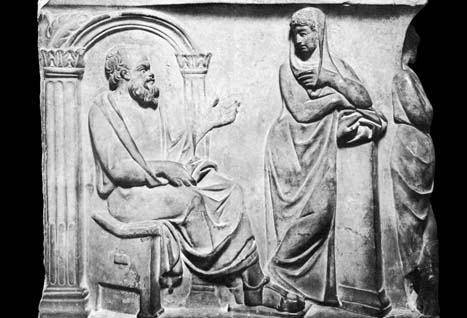Why Aren’t There More Auroras?

The killings in Aurora, Colorado are literally sickening. I’ve been a little sick about it all day. And I find myself with the urge to say that this sort of horrifying mass murder is “senseless,” that it defies comprehension, though it’s not clear to me why I want to say that. I guess some part of me wishes it were senseless. But it isn’t. We can make sense of hopelessness, anger, violent nihilism, bloodlust. It’s not really so hard to see why someone might want to punish the world, or to make life intensely vivid for a few fleeting moments by killing a roomful of screaming people. We recoil from such gruesome inner scenes, but only because imagination is so capable of calling them forth. I wouldn’t go so far as Terence and say “Homo sum, humani nihil a me alienum puto.” People do plenty that simply does not compute. But Aurora, I guess I’m sorry to say, is not one of those things. What’s truly terrifying to me is not that that this sort of thing is impossible to understand, but that it is so easy to imagine from the perspective both of the murdered and the murderer, and then, having imagined it, finding that I cannot quite fathom why it doesn’t happen all the time. It is our safety that’s mysterious.
[T]he surprising thing about the Aurora shooting is that incidents of this type don’t happen more often. We live in a (compared to the rest of the developed world) extraordinarily violent, deeply economically stratified nation, with more than 270 million guns floating around – enough to arm every adult and half the kids in the nation.
A lot of Americans are broke, or angry, or paranoid, or all three, and a lot of these people are heavily armed. It’s not exactly a shock that this combination of factors helps produce 15,000 murders per year.
Why should it be “surprising … that incidents of this type don’t happen more often”? Because we don’t really understand why they don’t. The fact that all the people who were murdered had gathered to watch the latest in a series of movies about mass-murdering lunatics must be meaningful. Our pop culture is chock full of deranged figures plotting mass destruction and death, which seems to me strongly to suggest that we find it pretty easy, enjoyable even, to imagine our way into the minds and motivations of men set on atrocity. Would we pay so much so often to feel the frisson of fictive enormities if the drive to commit them seemed to us too baffling to take seriously, like the desire to be suffocated by eels, or the urge to put a little glitter in every fat man’s pockets? I don’t think we would.
The URL but not the headline of Campos’ piece asks “why-arent-there-more-auroras”. Well, why aren’t there? Campos does not hazard a guess. Here is mine. We are more thoroughly controlled by our society’s norms than we tend to imagine. In a setting of peace, outside the context of war, to perpetrate an act like the Aurora massacre requires an almost superhuman feat of volition. There aren’t more Aurora’s because we are sociable robots, programmed for peace. To override that programming and act really monstrously requires both an uncommon estrangement and an implausibly free will.





